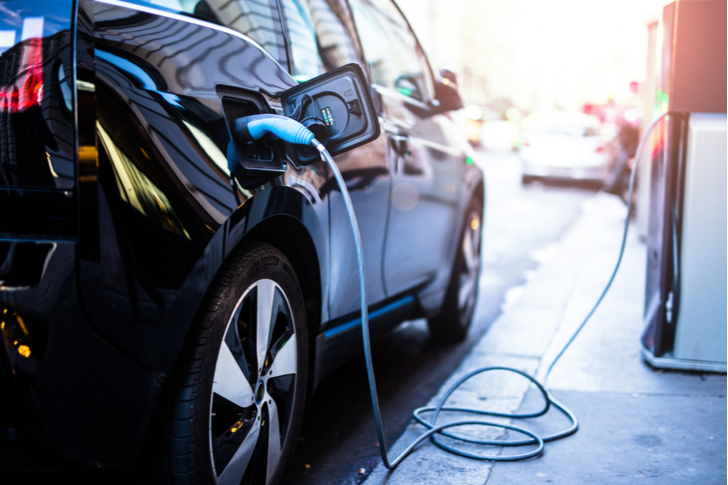A CFO’s guide to EV fleets in the UK
The UK is ranked third in LeasePlan’s EV Readiness Index due to the incentives available, charging infrastructure and overall maturity of the market
The UK is ranked third in LeasePlan’s EV Readiness Index due to the incentives available, charging infrastructure and overall maturity of the market

Electric vehicles have significantly increased in popularity in the last couple of years driven by a greater focus on ESG, the ongoing energy crisis and as a tool to boost employee satisfaction.
Matthew Walters, Head of Consultancy Services and Customer Value at LeasePlan UK explains the shift to electric fleets among businesses is driven by greater demand on companies to demonstrate their environmental impact, as well as other social and political factors.
“For businesses, the financial impact of not having done something, or not doing anything, is enormous. The punitive impact from customers, if you’re not doing something or if you unable to articulate what you’re doing, from a fleet or ESG perspective is writ large.”
In the most recent EV Readiness Index from LeasePlan, the UK maintained its position in the top three compared to other European countries with its incentives, infrastructure and maturity of the market pushing it to the top of the table.
“There are some really intelligent civil servants who ‘get’ EVs and understand what needs to be done from a net-zero and an infrastructure perspective,” says Walters.
“Taxation is very low and continues to be low, investment in infrastructure is very good, regulatory wise, despite reductions in government grants, the situation is improving and when you look at the number of EVs that people are ordering and adopting at a rapid pace, businesses want to make the change, all of those things are driving that index.”
Electric vehicles are typically viewed as more expensive compared to their petrol and diesel counterparts. However, it’s important for people not to focus on the higher up-front costs, says Walters.
“From a sticker price point of view, you immediately think that they’re more expensive,” he explains.
“When you start looking at the total cost of ownership and total cost of operation [and] take into account cost of fuel, vehicle excise duty, and maintenance costs, I would argue from a whole life cost perspective, EVs are better than their petrol and diesel counterparts.”
Alongside this, there are several factors that will help drive the price of electric vehicles down in the coming years.
The first is that most manufacturers are now diverting their resources, research and development to electric vehicles only which, as supply to the market increases, will see their price driven down, he says.
In 2021, Volvo announced it would phase out fossil-fuel engines by 2030 meaning its entire car line-up will be fully electric by the end of the decade, following in the steps of Ford Motor and Tata Motor’s Jaguar Land Rover unit.
Similarly, the UK will see a wave of new electric-only vehicles entering the UK market from overseas such as Great Wall Motor’s ORA unit which will be launching in the UK later this year, says Walters.
One way companies can make electric vehicles more appealing and an affordable option to their employees is by offering salary sacrifice schemes, says Walters.
The benefits of offering salary sacrifice stretch across multiple aspects of the company including national insurance savings for both employees and the business.
“Good practice is that the [employer] shares national insurance savings with their employees,” says Walters. “It’s really easy to communicate, it’s a good message and it feels good [as an] employer doing the right thing.”
Those enrolled in a salary sacrifice will be subject to a Benefit in Kind (BIK) tax which is calculated as a percentage of the car’s official list price and on the vehicles CO2 emissions. The current tax rate is set at 2% until 2025.
Moreover, salary sacrifice schemes are a great retention tool as they boost employee satisfaction.
Having an electric fleet comes with many ESG-related benefits including supporting companies to reduce their carbon emissions and meeting their obligations under the UK’s Streamlined Energy and Carbon Reporting (SECR) policy.
With ESG reporting becoming more rigorous, it’s important for companies to have a more transparent view of the emissions across their supply chain. This extends to company fleets with businesses needing data on greenhouse gas emissions and how they’re applying its net zero strategy to fleet management, explains Walters.
“For a finance director, if you don’t have a plan, you’re going to be in trouble,” he says. “You need to make sure that you have a plan as to how you’re going to reduce your emissions.”
Similarly, better ESG reporting can make the business more favourable to potential investors and shareholders as they reallocate their funds to greener investments.
Furthermore, companies can offset their financial rental costs of electric vehicles against corporation tax profits when vehicle CO2 emissions are below 75g, adds Walters.
The current supply chain challenges experienced across the motoring industry for electric and non-electric vehicles has created backlogs of orders meaning delivery time is longer than usual.
Businesses should “get in the queue” for placing EV orders to ensure they don’t miss out as the EV industry continues to evolve “pretty fast”, says Walters.
“If you place an order for any EV in six months’ time and lead times have changed, or you’re going to wait 18 months, you could have placed your order [at the start] and have new EVs in your fleet within 12 months.”
For more information on electric vehicles and leasing plans, visit LeasePlan.